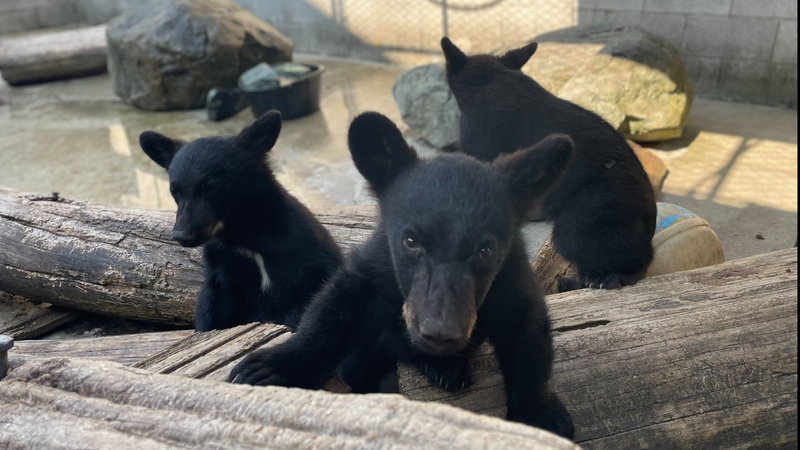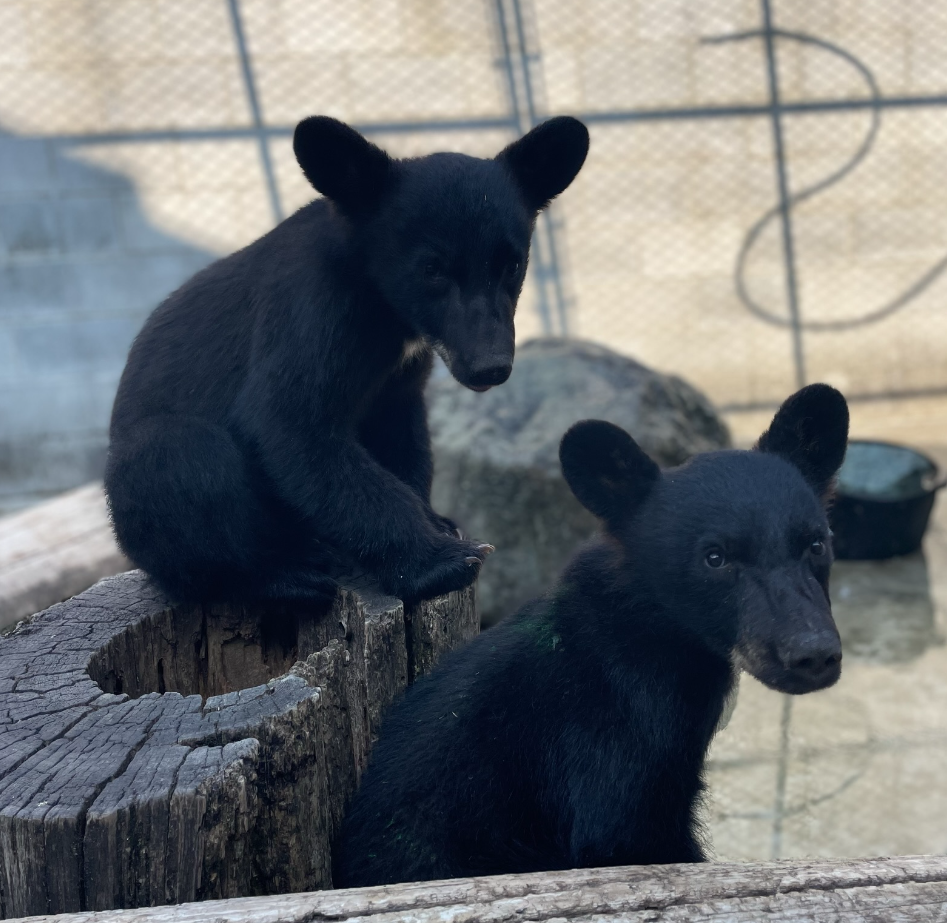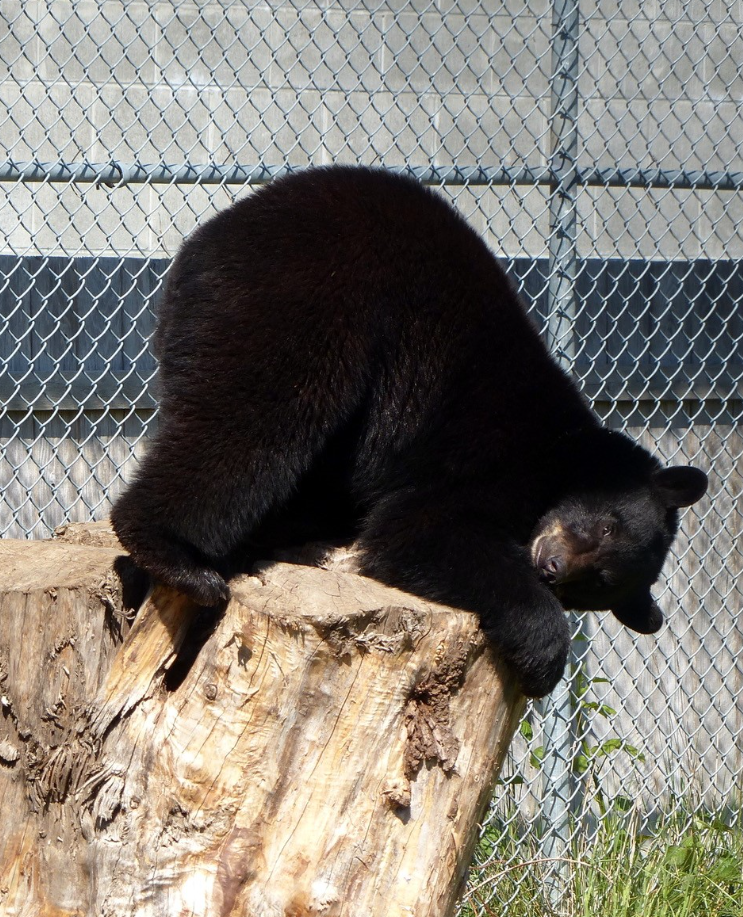
Errington wildlife rehab centre has unique relationship with bear cubs
ERRINGTON — Tough love adequately describes how staff and volunteers at the renowned North Island Wildlife Recovery Centre (NIWRC) treat its black bears prior to release back into the wild.
Believed to be about six months old, three young black bears in the non-profit organization’s care were orphaned after their food-habituated mother was euthanized in the Victoria area in late June, according to NIWRC animal care technician Derek Downes.
The cubs have settled into a cordoned-off enclosure west of Parksville, away from public view with the exception of a non-intrusive video feed.
“These three bear cubs have a second chance. They are going to be rehabilitated, raised and released next year and they’ll go back into the wild and live the life that a bear should live,” Downes proudly told NanaimoNewsNOW.




